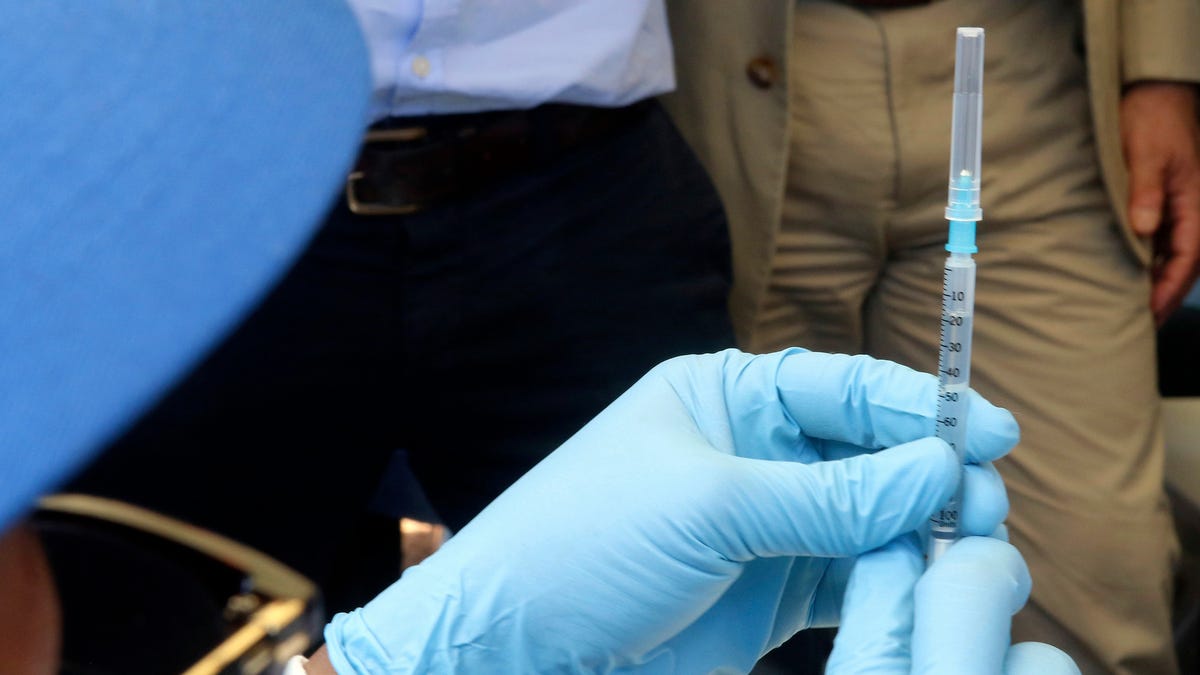In a World First, the EU Has Approved an Ebola Vaccine - 4 minutes read
 In a World First, the EU Has Approved an Ebola Vaccine
In a World First, the EU Has Approved an Ebola VaccineThe first human vaccine against the often-fatal viral disease Ebola is now an official reality. On Monday, the European Union approved a vaccine developed by the pharmaceutical company Merck, called Ervebo.
The stage for Ervebo’s approval was set this October, when a committee assembled by the European Medicines Agency (EMA) recommended a conditional marketing authorization for the vaccine by the EU. Conditional marketing authorizations are given to new drugs or therapies that address an “unmet medical need” for patients. These drugs are approved on a quicker schedule than the typical new drug and require less clinical trial data to be collected and analyzed for approval.
In Ervebo’s case, though, the data so far seems to be overwhelmingly positive. In April, the World Health Organization revealed the preliminary results of its “ring vaccination” trials with Ervebo during the current Ebola outbreak in the Democratic Republic of Congo. Out of the nearly 100,000 people vaccinated up until that time, less than 3 percent went on to develop Ebola. These results, coupled with earlier trials dating back to the historic 2014-2015 outbreak of Ebola that killed over 10,000 people, secured Ervebo’s approval by the committee.
“Finding a vaccine as soon as possible against this terrible virus has been a priority for the international community ever since Ebola hit West Africa five years ago,” Vytenis Andriukaitis, commissioner in charge of Health and Food Safety at the EU’s European Commission, said in a statement announcing the approval. “Today’s decision is therefore a major step forward in saving lives in Africa and beyond.”
Although the marketing rights for Ervebo are held by Merck, it was originally developed by researchers from the Public Health Agency of Canada, which still maintains non-commercial rights.
The vaccine’s approval, significant as it is, won’t tangibly change things on the ground anytime soon. In October, the WHO said that licensed doses of Ervebo will not be available to the world until the middle of 2020. In the meantime, people in vulnerable areas will still have access to the vaccine through the current experimental program. Although Merck has also submitted Ervebo for approval by the Food and Drug Administration in the U.S., the agency’s final decision isn’t expected until next year as well.
And while Ervebo may be a highly effective vaccine, the largest hurdles to containing the current Ebola outbreak have been structural. Public health workers have struggled to treat and vaccinate vulnerable communities amidst armed warfare in the country and have occasionally been targets of violence themselves. The vaccine is also only approved for people over the age of 18 to protect against Ebola Zaire, the most common subtype of the virus dangerous to people.
From August 2018 to this October, there have been more than 3,114 confirmed cases and 2,123 deaths documented, and the Ebola crisis remains an international public health emergency.
Source: Gizmodo.com
Powered by NewsAPI.org
Keywords:
Ebola vaccine • Virus • European Union • Vaccine • Pharmaceutical industry • Merck & Co. • European Medicines Agency • European Medicines Agency • Vaccine • Causality • Drug • Therapy • Medicine • Patient • Drug • Drug • Clinical trial • World Health Organization • Ring vaccination • Clinical trial • West African Ebola virus epidemic • Democratic Republic of the Congo • Vaccine • Ebola virus disease • Epidemic • Ebola virus disease • Vaccine • Virus • Ebola virus disease • West Africa • Vytenis Andriukaitis • Food safety • European Commission • Africa • Marketing • Merck & Co. • Public Health Agency of Canada • Vaccine • Vaccine • Merck & Co. • Food and Drug Administration • Vaccine • West African Ebola virus epidemic • Public health • Health professional • Social vulnerability • Community • War • Nation state • Violence • Vaccine • Person • Ageing • Zaire • Common law • Virus • Death • West African Ebola virus epidemic • International law • Public health emergency (United States) •